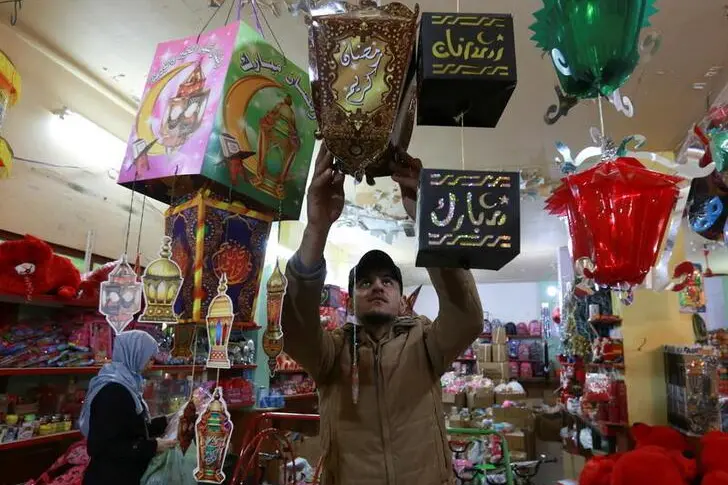PHOTO
Leading up to the holy month, preparations for Ramadan were slight in Beirut as only a few signs reminding people to donate could be seen in the city’s main streets. Charity foundations usually rely on the month of Ramadan every year to collect donations but the country’s ability to give is fleeting.
“More than 50 percent of the Lebanese now live under the poverty line,” World Bank Group Vice President for Middle East and North Africa Farid Belhaj said on April 4.
In an attempt to combat the spread of the virus, the National Disaster Management Operations Room imposed a new curfew that applies during Ramadan from 9 p.m. until 5 a.m. It has also banned all iftar events.
Charitable organizations can distribute food to houses, but only after obtaining a permit from the electronic platform. The capacity of worshippers at mosques will be limited to 30 percent while restaurants and cafes, which have already endured several months of lockdown, will be closed again during the holy month.
The price inflation has become a daily nightmare for the Lebanese, and with the arrival of Ramadan, the prices of essential goods, like vegetables and fruits, have increased even further due to the high demand.
“The price of one kilo of beef has increased to between 60 and 70,000 pounds and a kilo of taouk chicken was sold at 50,000 pounds on the first day of Ramadan,” Abbas Ali Salim, a butcher shop owner in Beirut’s southern suburbs, told Arab News.
“People ask me about the prices, and when I answer, they seem very unhappy. Some even beg me to give them lower prices. But the truth is, I am one of these people. I am suffering just like them. The black market is trading the state-subsidized meat, monopolized by traders who are controlling the prices.”
Due to inflation, the cost of a typical iftar meal — lentil soup, fattoush salad, a main dish of chicken and rice, a half a cup of yogurt and a single date — has reached more than 60,000 Lebanese pounds, according to the crisis observatory at the American University of Beirut.
By those estimates, a full month of iftar meals for a family of five would cost 1.8 million pounds, which is much higher than the Lebanese minimum wage of 675,000 pounds. This cost does not even cover the juices, desserts, gas, electricity or cleaning material used for cooking.
Researchers at the observatory said a fattoush salad for a small family that cost 6,000 pounds during Ramadan last year, now costs 18,500 pounds. This means that the cost of a daily salad during this year’s Ramadan would be about 82 percent of the minimum wage.
The observatory feared that families might cope with the inflation by “cutting quantities or opting for cheaper alternatives to replace vegetables and meat, which would result in malnutrition.”
Mohammad Chamseddine, a researcher from the independent studies and statistics company Information International, said: “The prices of basic goods in Ramadan have increased by between 25 and 100 percent, with a significant reduction in sales, as the purchasing power of the Lebanese, especially those getting paid in Lebanese pounds, has eroded.”
Ramadan has also been affected by the country’s slow COVID-19 vaccination plan, which started in February. Lebanon's Health Minister Hamad Hassan said on Tuesday that “over 20 percent of the Lebanese people have developed immunity, either through infection or vaccination.”
Copyright: Arab News © 2021 All rights reserved. Provided by SyndiGate Media Inc. (Syndigate.info).





















